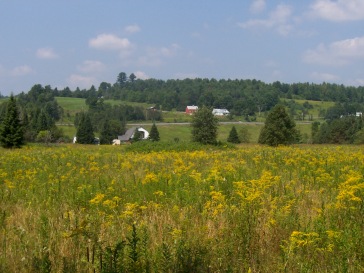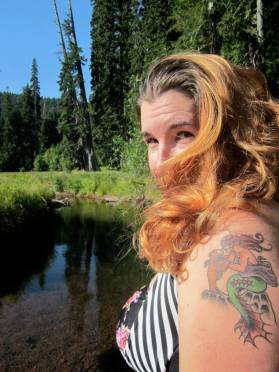 I’m delighted to be offering an online class about writing from where we live, from our bodies to the cosmos, as part of the Transformative Language Arts Network. Since I usually interview teachers about their upcoming classes, here I am interviewing myself about the details and impetus behind “Coming Home to Body, Earth and Time: Writing from Where We Live,” which runs from June 29 – Aug. 9, all online, so you can engage with the class from anywhere at anytime. Register by June 10 to take advantage of the Summer Buzz sale, and save 10% on the class (and all other upcoming class this summer and early fall).
I’m delighted to be offering an online class about writing from where we live, from our bodies to the cosmos, as part of the Transformative Language Arts Network. Since I usually interview teachers about their upcoming classes, here I am interviewing myself about the details and impetus behind “Coming Home to Body, Earth and Time: Writing from Where We Live,” which runs from June 29 – Aug. 9, all online, so you can engage with the class from anywhere at anytime. Register by June 10 to take advantage of the Summer Buzz sale, and save 10% on the class (and all other upcoming class this summer and early fall).
Caryn-the-Interviewer: So Caryn, and by the way, I love the way you spell your name, what led you to develop this class?
Caryn Mirriam-Goldberg: Thanks, Caryn, and yes, I like the spelling too. My mom found it in a novel she was reading when pregnant with me. As for the class, I’ve been grappling with what it means to live in a body and in a place forever, it seems, and some years back, it became very apparent to me how our bodies are our most local address. Where I live sparks a great deal of my writing and my understanding of how seasonal tilts around us speak to seasonal tilts within us. So I wanted to offer others gateways into exploring what inspiration, ideas, breakthroughs and meanings we can find by sinking our roots further into where we live, starting with the body, and rippling out to explore the home, watershed, ecoregion, earth and cosmos.
CtI: Interesting, and you know, my mom found the spelling of my name in a novel too when she was pregnant. So what can people expect in this class?
CMG: Each week will include ample writing prompts and discussion about ways to engage with embodied writing that truly homes in on where we live and who we are, so it’s very much an exploration of how we name and claim ourselves, and what stories we tell ourselves and are told by our culture about, based on where we are, who we’re supposed to be. A lot of the writing prompts are aimed toward greater liberation and awareness, which obviously go hand-in-hand. For example, in week three, we’ll look at watershed moments in our lives — moments that changed everything for us or at least one big thing — and from those moments, what greater possibilities opened out as well as what stories ended or very much changed. By honoring how our narratives have shaped our lives, including what stories we needed to hold tight to as scaffolding to get to the next place, we can cultivate greater freedom to change what no longer serves us.
Each week will also include a visiting writer via his/her writings, interviews, and a little essay I share about the writer, and these writers span genres, such as essayist David Abram, novelist Barbara Kingslover, singer-songwriter Mary Chapin Carpenter, and poet William Stafford. We’ll also have a short discussion on the craft of writing powerfully since we can best understand and evoke the places we are when our images are vivid, our rhythms strong, and our stories evocative.
CtI: You’re someone who writes in many genres. Would you say “writing from where you live” is evident in all your own writing?
 CMG: Good question, Caryn, and of course, as with most things, the answer is “it depends.” I’m very focused on the physical place of where I live and travel because I find such sustenance from where I am at this very moment, particularly the living earth. Right now, I’m writing answers to your questions from my front porch, and I live in the country with an up-close view of Osage Orange and ceder trees filled with songbirds broadcasting their love and fight songs. Most of my poetry, if not all, finds grounding in images of place, but then again, just about all poetry uses images, and images always evoke the senses: what we can see, touch, taste, hear and smell. Plus, I see the poem as a house of its own that readers enter, find a good sofa to lie down on, and then spend a little time in, listening to the voices of this place. My two memoirs, The Sky Begins at Your Feet: A Memoir of Cancer, Community and Coming Home to the Body, and Poem on the Range: A Poet Laureate’s Love Song to Kansas are both very place-focused, and Sky is also speaking from the place of the body in a time of great change. My novel, The Divorce Girl, and novel to be published next year, Miriam’s Well, are stories in which the protagonist is shaped and infused by her place — where she lives and travels, and how her internal landscape shifts as well.
CMG: Good question, Caryn, and of course, as with most things, the answer is “it depends.” I’m very focused on the physical place of where I live and travel because I find such sustenance from where I am at this very moment, particularly the living earth. Right now, I’m writing answers to your questions from my front porch, and I live in the country with an up-close view of Osage Orange and ceder trees filled with songbirds broadcasting their love and fight songs. Most of my poetry, if not all, finds grounding in images of place, but then again, just about all poetry uses images, and images always evoke the senses: what we can see, touch, taste, hear and smell. Plus, I see the poem as a house of its own that readers enter, find a good sofa to lie down on, and then spend a little time in, listening to the voices of this place. My two memoirs, The Sky Begins at Your Feet: A Memoir of Cancer, Community and Coming Home to the Body, and Poem on the Range: A Poet Laureate’s Love Song to Kansas are both very place-focused, and Sky is also speaking from the place of the body in a time of great change. My novel, The Divorce Girl, and novel to be published next year, Miriam’s Well, are stories in which the protagonist is shaped and infused by her place — where she lives and travels, and how her internal landscape shifts as well.
Yet what draws me to this class isn’t just what I write but more so, what I live. As a longtime bioregionalist — someone who keep learning how to live from where I live — I see the body, the landscape, and the night sky as well as the  shifting eco-community of what David Abram calls the “more-than-human” species among us as continually showing me the way through the crazy losses and wild joys of this beautiful life.
shifting eco-community of what David Abram calls the “more-than-human” species among us as continually showing me the way through the crazy losses and wild joys of this beautiful life.
CtI: Thanks, Caryn, and it’s interesting that you’re writing from a porch with a view of those trees and birds because I’m on a porch with the same view. Maybe we should meet up sometime for tea.



